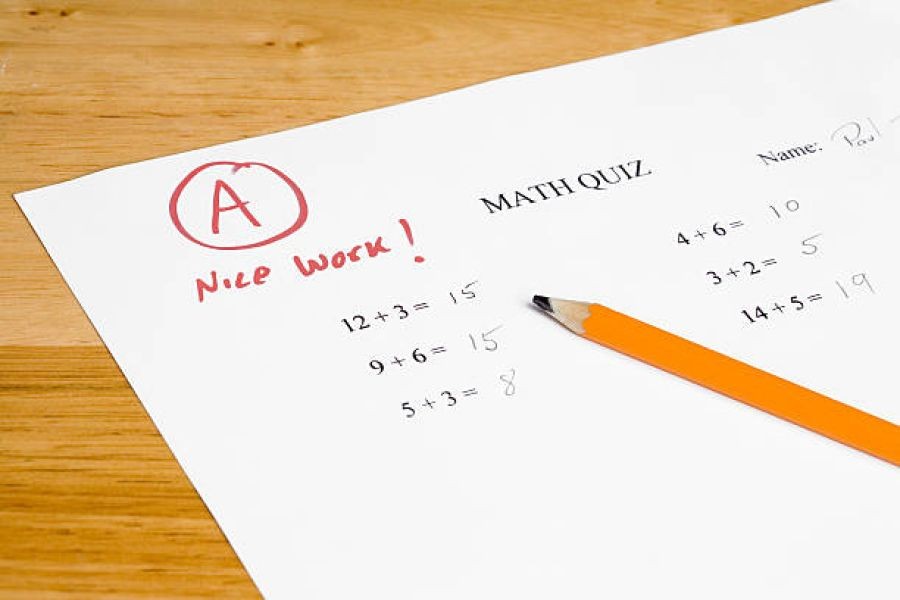Imagine spending countless hours buried in textbooks, only to find that your exam scores don't reflect your hard work. This scenario is all too familiar for many students in New Zealand. With the education landscape rapidly evolving, understanding the nuances of effective study habits is crucial. According to a report from the University of Auckland, 65% of students admit to feeling unprepared during exams despite extensive preparation. So, what are the study mistakes that might be hindering your performance?
Let’s delve into these common pitfalls and explore strategies to enhance your study efficiency. Share your thoughts and experiences in the comments below!
Identifying the Problem: Common Study Mistakes
To optimize your study habits, it's essential to identify the mistakes many students make. These errors often have a significant impact on exam performance and are prevalent among New Zealand students.
- Procrastination: Delaying study sessions leads to cramming, which is less effective for long-term retention.
- Passive Learning: Reading notes passively without engaging with the material leads to poor recall during exams.
- Lack of Practice: Failing to practice past exam papers or sample questions results in unfamiliarity with exam formats.
- Overloading Information: Attempting to learn too much at once without breaks can lead to burnout and reduced retention.
Real-World Case Studies
Case Study 1: A Kiwi Student's Journey
Problem: Sarah, a student at the University of Canterbury, struggled with time management and often crammed before exams.
Action: She adopted a structured study schedule and incorporated active learning techniques, such as self-quizzing and group discussions.
Result: Her exam scores increased by 30% within a semester, highlighting the effectiveness of these methods.
Key Takeaways: Time management and active engagement with study material are crucial for exam success.
Case Study 2: A Corporate Training Program in Wellington
Problem: A Wellington-based company noticed that their employees were underperforming in certification exams required for career advancement.
Action: The company introduced interactive workshops and practice exams to enhance learning.
Result: The pass rate increased by 45% over the next year.
Key Takeaways: Interactive learning and consistent practice significantly improve exam performance.
Data-Driven Analysis
According to Stats NZ, only 40% of students utilize effective study techniques, such as spaced repetition and active recall. Furthermore, research from Massey University indicates that students who engage in regular self-assessment improve their retention rates by 50% compared to those who don't.
These statistics underscore the importance of adopting proven study methods to boost exam performance.
Common Myths & Mistakes
Myth vs. Reality
- Myth: "Cramming the night before is effective." Reality: Studies show that information retention drops significantly when cramming is used as the primary study method (University of Auckland, 2023).
- Myth: "Re-reading notes is the best way to learn." Reality: Active engagement with the material, such as self-quizzing, is far more effective for retention (Massey University, 2023).
- Myth: "More study hours equal better scores." Reality: Quality over quantity is key; focused sessions with breaks lead to better outcomes (Stats NZ, 2024).
Did you believe in any of these myths before reading this? Share your thoughts below!
Final Takeaways
- ✅ Fact: Active learning techniques boost retention by up to 50%.
- 🔥 Strategy: Implement a study plan that includes regular breaks and varied study methods.
- ❌ Mistake to Avoid: Avoid cramming as it severely reduces retention.
- 💡 Pro Tip: Use practice exams to familiarize yourself with the test format and improve performance.
Prediction: By 2030, interactive and tech-driven learning methods will be the standard in New Zealand's education system.
Conclusion
Understanding and avoiding common study mistakes can significantly improve your exam scores. By implementing active learning techniques and managing your study schedule effectively, you can enhance both your retention and performance. Ready to make a change? Start by revising your study plan and incorporating these insights today.
What’s your next move? Share your study strategies in the comments below!
People Also Ask
- How does procrastination impact exam scores? Procrastination leads to cramming, resulting in poor retention and increased stress, which ultimately lowers exam scores.
- What are effective study techniques for New Zealand students? Techniques such as active recall, spaced repetition, and practice exams are highly effective for improving retention and performance.
- How can I improve my study habits? Develop a structured study schedule, incorporate regular breaks, and engage actively with the material to boost retention.
Related Search Queries
- Effective study techniques for exams
- How to avoid cramming for exams
- Active learning methods for students
- Best study habits for New Zealand students
- Common myths about studying
- How to improve exam scores quickly
- Interactive learning tools for students
- Study schedule tips for busy students
- Procrastination and its effects on learning
- Benefits of practice exams
































bennettb626044
5 months ago